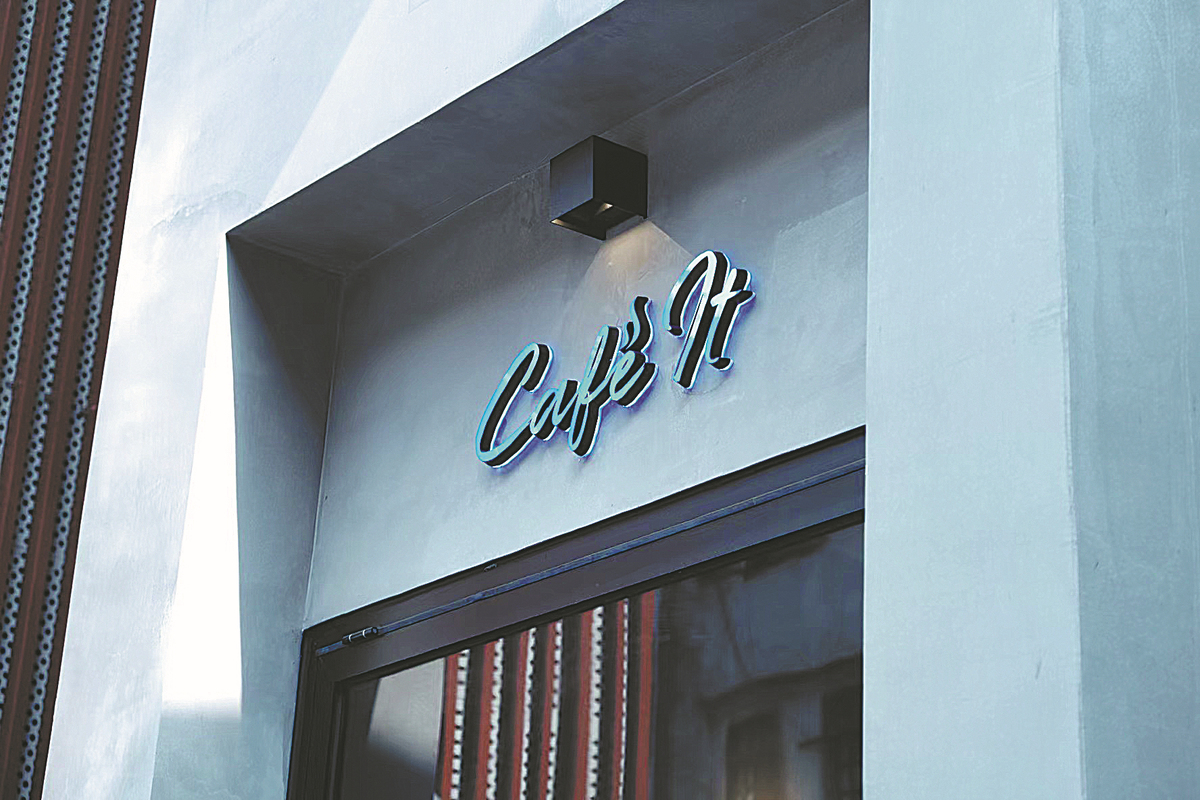Finding home in hotpot capital
By: By TAN YINGZI and DENG RUI in Chongqing

Finding home in hotpot capital

Alison Lee makes coffee at her coffee shop, Cafe It, in Chongqing. [Photo by DENG RUI/CHINA DAILY]
Sidetracked by pandemic, Hong Kong entrepreneur brews a new future making coffee for Chongqing
A loft-style cafe on Luzumiao Street, a centennial street in downtown Chongqing, has become a hot spot for urban dwellers and tourists of late for its modern design and affordable coffee.
Cafe It, the 60-square-meter coffee shop, has six distinctive CD players adorning its walls and can seat about a dozen customers.
With her adventurous spirit, owner Alison Lee from Hong Kong has finally been able to realize her dream of being an entrepreneur in the southwestern city.
Born in Hong Kong in 1985, Lee had been working in product development in the catering industry after graduating from Sydney's Macquarie University in 2008.
Invited by a college mate who suggested they work together on a startup as part of a group of 10 young entrepreneurs, Lee quit her job in Hong Kong and came to Chongqing in 2019.
"I knew nothing about the place apart from its reputation for hotpot before I came," she said. "I was surprised to see that this inland municipality has developed so well and so fast."
Located on the upper reaches of the Yangtze River, Chongqing, which is about the size of Austria, is the fourth municipality directly under central government administration, together with Beijing, Shanghai and Tianjin.
With a population of about 30 million people and known for its industrial might, it is also a gateway to inland China and a hot investment destination.
Just as the group was about to start their company in early 2020, the COVID-19 epidemic broke out. All the other members returned to Hong Kong, but Lee chose to stay and give things a try.
"Of all places in the world to start a business, I wanted somewhere on the mainland."
She felt that a new first-tier city like Chongqing might be just the place to open a shop with a reasonable rent and low labor cost. More established first-tier cities such as Beijing and Shanghai are more like Hong Kong, with high rents and salaries.
In September, Lee opened her coffee shop. She said the CDs decorating the walls are hers and are meant to make the place feel more like home.
"Drinking coffee is not an extravagance, it's just the same as us Chinese drinking tea," Lee said, adding that it is her dream to serve affordable coffee to everyone.

Cafe It has become a popular choice for tourists and local coffee consumers. [Photo/China Daily]
Thanks to its small-profits-but-quick-turnover mass-market policy of the last six months, Cafe It has developed a reputation with nearby workers for high-quality coffee at reasonable prices. Lee said that more and more tourists are visiting as well.
"I have had the mocha from Cafe It, and it tastes good," said 44-year-old Zheng Yang, one of her customers.
Lee said that in Hong Kong, coffee is served at the city's Cha Chaan Teng (tea and food restaurants) and drunk at all hours of the day, so she's put up a sign saying "Coffee Is A Daily Essential" on the customer side of the counter.
"I've seen coffee culture in Chongqing take off, just like Hong Kong 10 years ago," Lee said. "The potential here is huge."
She said the epidemic has slowed down things, but fortunately, her revenues keep rising. Now, she's considering opening a second branch in the near future.
Lee said the biggest challenge is that the market in Chongqing is different. Even though local people like flavored coffees and coffees that look good, she serves only a few classics like flat white, latte, Americano and espresso.
Her employees said they enjoy working there.
"Alison is a very gentle boss. The atmosphere in the cafe is good, and working here is fun," said local barista Zhou Youwei, 25.
Since Hong Kong's return to the motherland in 1997 and Macao's in 1999, Beijing has encouraged young people from both cities to look into study and work opportunities on the mainland.
"The young people from Hong Kong and Macao who come to Chongqing to start businesses can share in the development opportunities of the Chengdu-Chongqing economic circle initiative, help the cities integrate into the overall national development plan and bring new vitality to all the places," said Ma Xing of Chongqing's Hong Kong and Macao Affairs Office.

Lee displays a cup of coffee she made at her shop. [Photo/China Daily]
In 2020, a youth entrepreneurship platform was set up by the municipal government to help young entrepreneurs from Hong Kong and Macao learn more about the mainland and explore development opportunities.
Ma said the city also encourages talented individuals to enter municipal-level incubators, where they can enjoy advantages such as rent reduction and financial docking.
"Chongqing is a nice place to work, and it has become my second home. It must be destiny," Lee said.
After being separated from her family for more than two years due to the pandemic, she said that local people are warm, straightforward and open, which makes her feel at home.
"Having traveled around the world, it's the people, not the food or scenery, that make me want to settle down in one particular city," she said.
Last year, Lee met her soul mate, a Cantonese restaurateur who has been working in Chongqing for over 15 years. She said they share the same hobbies and dreams, and it is thanks to him that she has been able to fit into the city faster.
Now, the person who once favored less spicy dishes eats hotpot every week.
In her spare time, Lee loves to explore the city on foot, read comics and watch animated films and Japanese TV dramas.
Recently, she began selling clothing via livestreaming on the short-video platform Douyin.
Lee's motto is to live in the moment. "When there is a challenge, stay focused on the present task and keep moving, even if it's just one step forward. Never give up, and in time, great things will happen," she said.



Comments are subject to the Discovery Group RED BOX RULES which can be accessed by clicking on this link -> or by clicking on the Discovery Group avatar at the top right of the article page above.
Political comments are off topic and will be deleted.
Chongqing has been our home for about 4 years, and I'm quite happy to see this story. I hope that her next location will be near us, which would be a smart choice for her since we are within walking distance of 3 large university campuses. Although there is already a Starbucks in our mall (and many throughout China) I consider it to be a ripoff, and the only coffee I drink is the fresh-brewed mug I make with breakfast.
Chongqing does NOT have a covid virus problem, and although there may only be a few present cases in this city-state of more than 30 million people, everyone is being very careful, adhering to guidelines, and it is quite safe here. I learned long ago that the people in Chongqing are quite sophisticated and educated, especially as compared with those in Zhengzhou where I first lived and taught high school English.